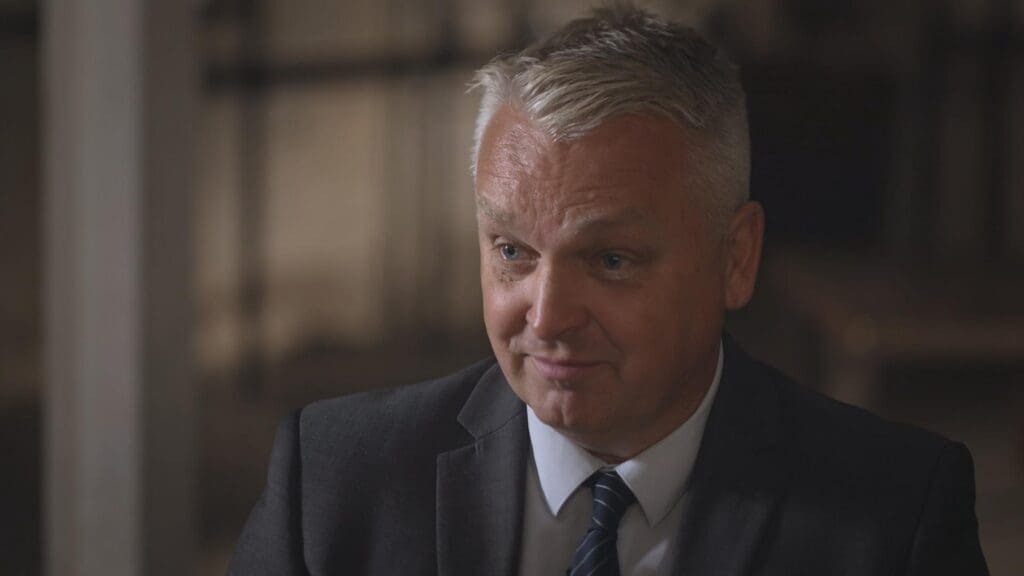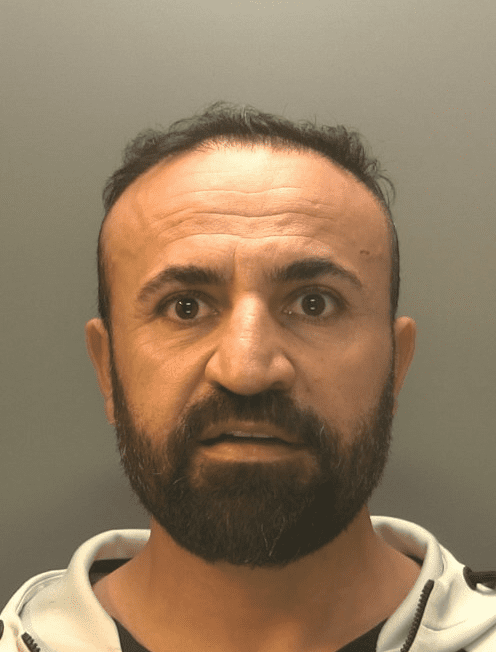A BBC investigation has uncovered evidence that an informal banking system is being exploited by people smugglers to bring thousands of migrants from the Middle East to Europe.
Known as the hawala system, it’s used extensively abroad and also in the UK; and has few electronic or paper trails. It operates mostly on trust and can be used legitimately to transfer funds.
But posing as a migrant, an undercover reporter for the BBC found people within that network who were also facilitating Iraqis to travel to the UK illegally.
At first, the undercover reporter found a man on TikTok selling fake passports and offering to fly him from France to the UK for $8,000.
“My brother – we have by plane from France to Britain,” says the man, who calls himself Bawar, when he messaged the undercover reporter on WhatsApp.
“We guarantee no stoppage or fingerprinting”.
Bawar, who claimed to be based in Cardiff, claims to buy genuine passports from drug addicts; and he says he sometimes steals the details from dead people.
The undercover reporter was directed to go to a hawala bank in Erbil, northern Iraq, to pay for the deal.
The BBC secretly filmed the hawala banker, who acknowledged that Barwar had sent him, and said: “Oh yes, you are depositing money.”
The undercover reporter made it clear to him that it was for a document and flight to the UK.
“You must know that the fee is £400,” said the hawala banker.
“£400, so the total is £8,400”.
The undercover reporter left, saying he would come back with the money. He didn’t go through with the deal. The hawala banker denied being involved in people smuggling.
This system of hawala banking is particularly hard for law enforcement organisations to trace.


“There are a number of known hawalas in the UK currently, some of which are regulated,” said Derek Evans, Branch Commander for the National Crime Agency.
“But there’s an awful lot of people that aren’t regulated and working within a criminal network within the UK.”
Hawala banking is used legitimately by millions, particularly in the Middle East, and versions exist throughout the world. It relies on trust, with no electronic transactions and very little in the way of paper trails.
The system was exploited by two men from Caerphilly, in south Wales, who were involved in an extensive people smuggling operation.


Dilshad Shamo, 41, and Ali Khdir, 40, last week (Friday) pleaded guilty to five charges of being involved in people smuggling.
But due to the hawala banking system, the National Crime Agency has been unable to trace their proceeds of crime.
“Unfortunately, there were actually minimal assets that we could try to recover in the UK purely because of this Hawala system. It didn’t allow us to sort of follow any financial footprint,” said Mr. Evans.
Concerns about the exploitation of the hawala banking system have reached the United Nations, which says action needs to be taken.
“I think that definitely not enough is being done,” said Claire Healey, from the United Nations Office on Drugs and Crime.”
“What we would call for right now is really a refocusing efforts to combat migrant smuggling on those financial flows, on those financial aspects, rather than simply targeting smuggled migrants who arrive in a certain country.
“What we need to understand is, is where is the real money going behind that?”
All hawalas in the UK are meant to be registered.
The Home Office said it would stop at nothing to dismantle people smuggling gangs.
And it said the National Crime Agency is working to disrupt those gangs who use hawalas to money launder.
The National Crime Agency had Shamo and Khdir under surveillance for six months, and charged them with smuggling around 500 people from the Middle East to Europe.
But it’s believed the pair were responsible for smuggling many more.
Derek Evans, from the NCA, added: “From our (covert) audio recordings, potentially a hundred people a week.. And potentially going on for a couple of years.”
That could mean Shamo and Khdir were responsible for smuggling as many as 10,000 people.









Leave a Reply
View Comments